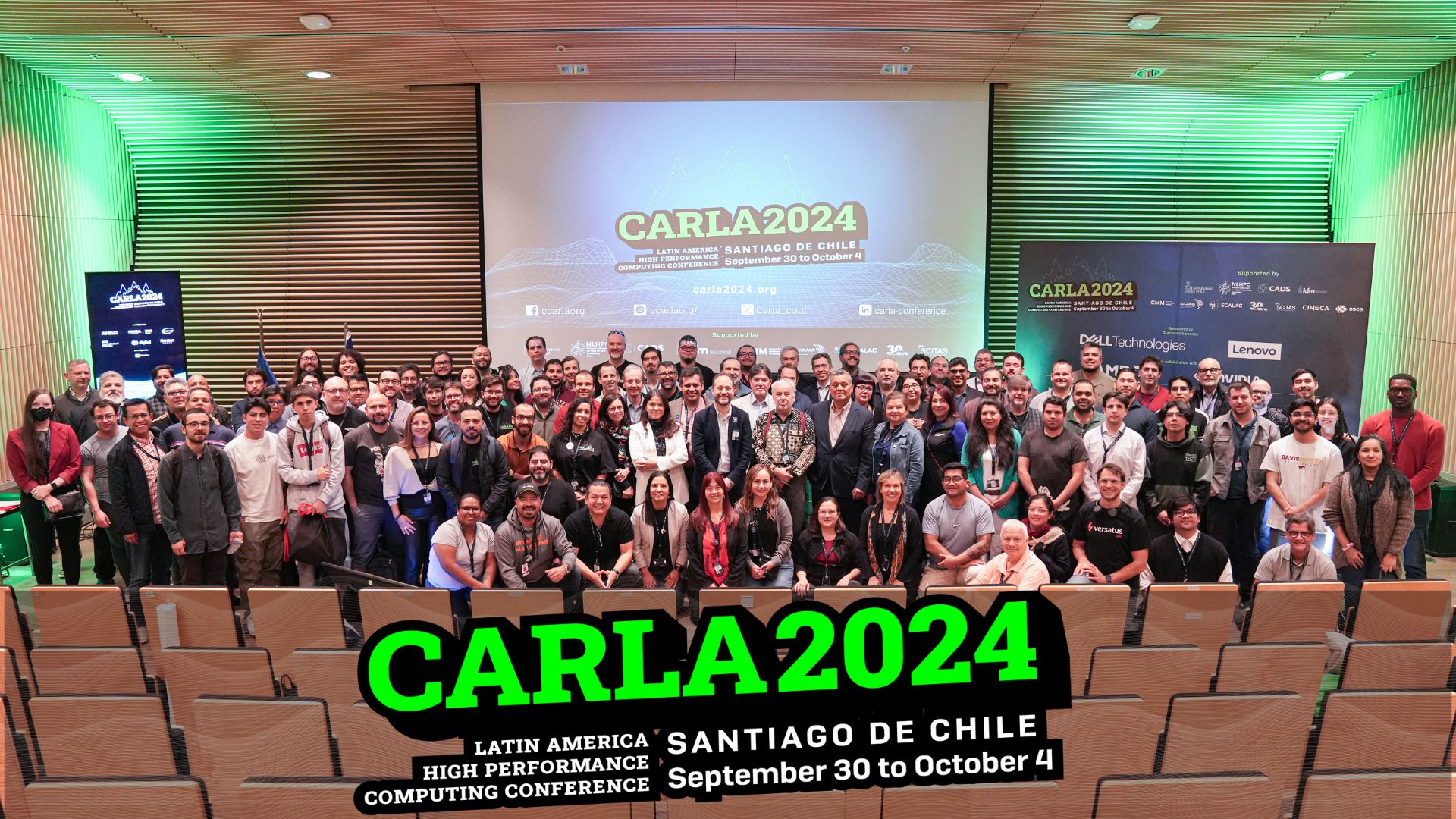The 11th edition of CARLA was held in Santiago de Chile
After 10 years, the Latin American High Performance Computing Conference (CARLA) returned to Chile, bringing together global experts to enhance the exchange and dissemination of new ideas, techniques, and research in HPC (high-performance computing) and its areas of application.
This 2024 edition, held at the Faculty of Physical and Mathematical Sciences of the University of Chile, placed special emphasis on artificial intelligence, machine learning, quantum computing, simulation and modeling, and Exascale systems.
“Collaboration at the Latin American level is essential if we are to advance development, improve people’s well-being, address climate change challenges, health issues, and strengthen our democracies. We need technological capacities, and conferences like CARLA highlight the importance of computing infrastructure,” remarked Aisén Etcheverry, Chile’s Minister of Science, Technology, Knowledge, and Innovation, during the opening ceremony.
Philippe Navaux, president of the Advanced Computing System for Latin America and the Caribbean (SCALAC), highlighted that “we are at a pivotal moment where all countries, particularly in Latin America, are collaborating on HPC development thanks to AI. CARLA 2024 is catalyzing the participation of researchers, students, and companies interested in presenting their latest technologies.”
“It is a great pleasure for the University of Chile to host CARLA. This is a space to discuss scientific innovation. We are at a unique and historic moment for supercomputing. The demands are enormous, and the applications are limitless, from artificial intelligence to large language models (LLM) and deep neural networks. This makes supercomputing infrastructure one of the most relevant technologies today,” highlighted José Correa, Vice-Rector of Information Technologies at the University of Chile.
Ginés Guerrero, director of the National Laboratory for High Performance Computing (NLHPC) and host of the event alongside the Center for Mathematical Modeling (CMM), explained that “collaboration is key. Chile doesn’t need to start from scratch in supercomputing; it must strengthen these cooperation spaces with different countries.”
“The conference has been a success, with over 300 attendees from 28 countries. This year, we have support from 16 of the world’s leading high-performance computing companies. We hosted five thematic workshops, six advanced tutorials, five discussion panels, and featured more than 30 renowned speakers. We received 42 scientific papers, representing a 68% increase compared to the previous edition. A notable novelty was the inclusion of a school for HPC system administrators, a crucial space for sharing experiences and strengthening collaborations, as they are the backbone of our supercomputing centers. Special thanks to Antonio Russo and Nicolás Wolovick for leading the initiative and to all the professors for their efforts,” Guerrero detailed.
You can read the full story at: https://www.cmm.uchile.cl/?p=56807


